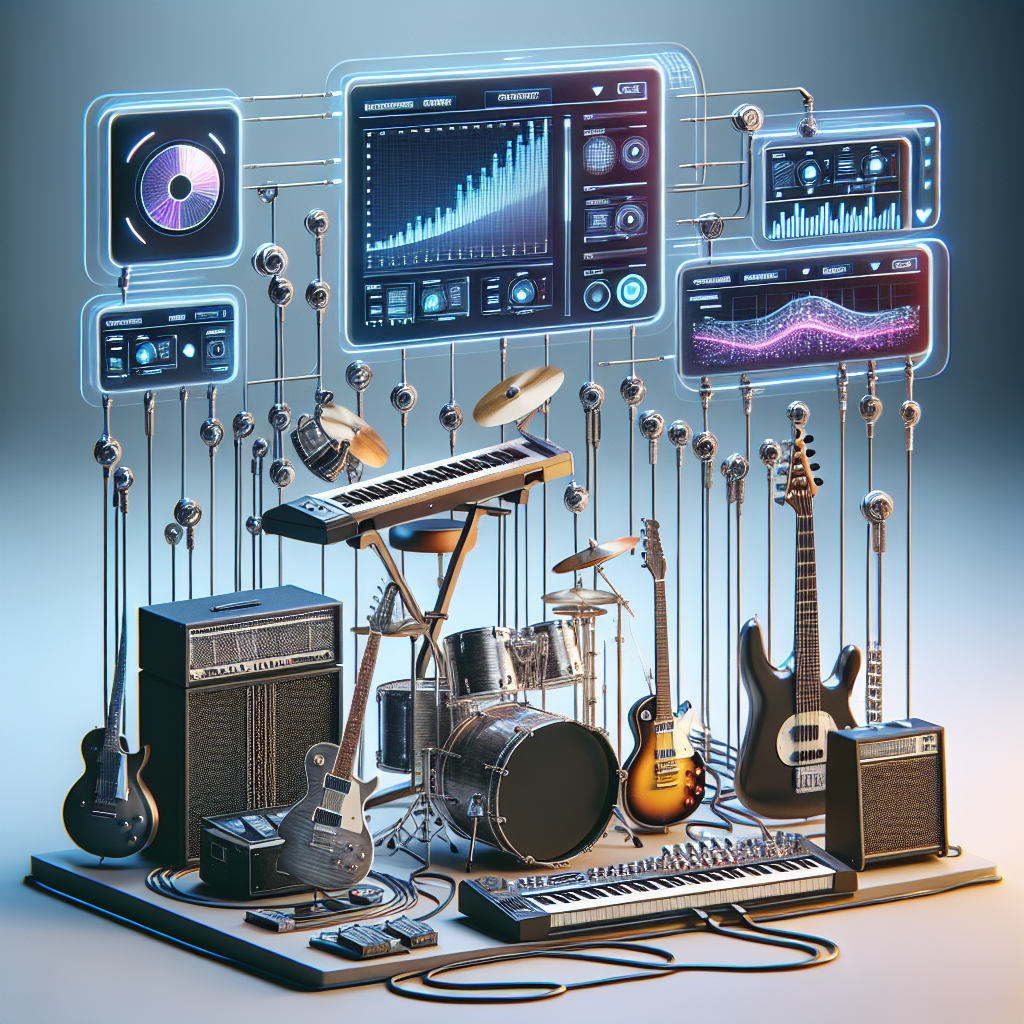The music industry has undergone significant changes over the past few decades, from the rise of digital streaming platforms to the decline of physical album sales. One of the key issues facing musicians and music industry professionals today is how to effectively license and collect royalties for their work in an increasingly complex and globalized market.
Artificial intelligence (AI) is poised to revolutionize the way music is licensed and royalties are collected in the future. By automating many of the processes involved in licensing and royalty collection, AI has the potential to streamline operations, reduce costs, and ensure that musicians are properly compensated for their work.
AI and Music Licensing
Music licensing is the process by which music is legally used in various media, such as films, television shows, commercials, and video games. It involves obtaining permission from the copyright holder to use their music in exchange for a fee or royalty payment. This process can be time-consuming and complex, as there are often multiple parties involved in the creation and ownership of a piece of music.
AI can help simplify the music licensing process by automating many of the tasks involved, such as identifying the copyright holder, negotiating licensing terms, and tracking the use of music in various media. For example, AI can be used to analyze music metadata, such as song titles, artist names, and release dates, to determine the ownership and licensing status of a particular piece of music.
AI can also be used to create personalized licensing agreements based on the specific needs of the licensee, such as the duration of use, geographic location, and media format. This can help ensure that both parties are satisfied with the terms of the agreement and reduce the risk of disputes or legal issues down the line.
In addition, AI can help track the use of music in various media and ensure that royalties are properly collected and distributed to the copyright holders. By analyzing data from streaming platforms, radio stations, and other sources, AI can identify when and where a piece of music is being used and calculate the appropriate royalty payments.
AI and Music Royalties
Royalties are payments made to copyright holders for the use of their music in various media. They are typically calculated based on the number of times a piece of music is played or downloaded, as well as other factors such as the duration of use and the geographic location of the audience.
AI can help streamline the royalty collection process by automating many of the tasks involved, such as tracking the use of music in various media, calculating royalty payments, and distributing payments to copyright holders. This can help ensure that musicians are properly compensated for their work and reduce the risk of errors or discrepancies in the royalty collection process.
AI can also help identify potential sources of royalties that may have been overlooked in the past, such as unlicensed music use on social media platforms or unauthorized cover versions of songs. By analyzing data from a wide range of sources, AI can help identify these sources of royalties and ensure that copyright holders are properly compensated for their work.
FAQs
Q: How can AI help simplify the music licensing process?
A: AI can help simplify the music licensing process by automating many of the tasks involved, such as identifying the copyright holder, negotiating licensing terms, and tracking the use of music in various media. This can help streamline operations, reduce costs, and ensure that musicians are properly compensated for their work.
Q: How can AI help track the use of music in various media and ensure that royalties are properly collected?
A: AI can help track the use of music in various media by analyzing data from streaming platforms, radio stations, and other sources. By identifying when and where a piece of music is being used, AI can calculate the appropriate royalty payments and ensure that copyright holders are properly compensated.
Q: How can AI help identify potential sources of royalties that may have been overlooked in the past?
A: AI can help identify potential sources of royalties by analyzing data from a wide range of sources, such as social media platforms and online streaming services. By identifying unauthorized uses of music, AI can help ensure that copyright holders are properly compensated for their work.
In conclusion, AI has the potential to revolutionize the way music is licensed and royalties are collected in the future. By automating many of the tasks involved in licensing and royalty collection, AI can help streamline operations, reduce costs, and ensure that musicians are properly compensated for their work. As the music industry continues to evolve in the digital age, AI will play an increasingly important role in ensuring that copyright holders are properly compensated for their work.

